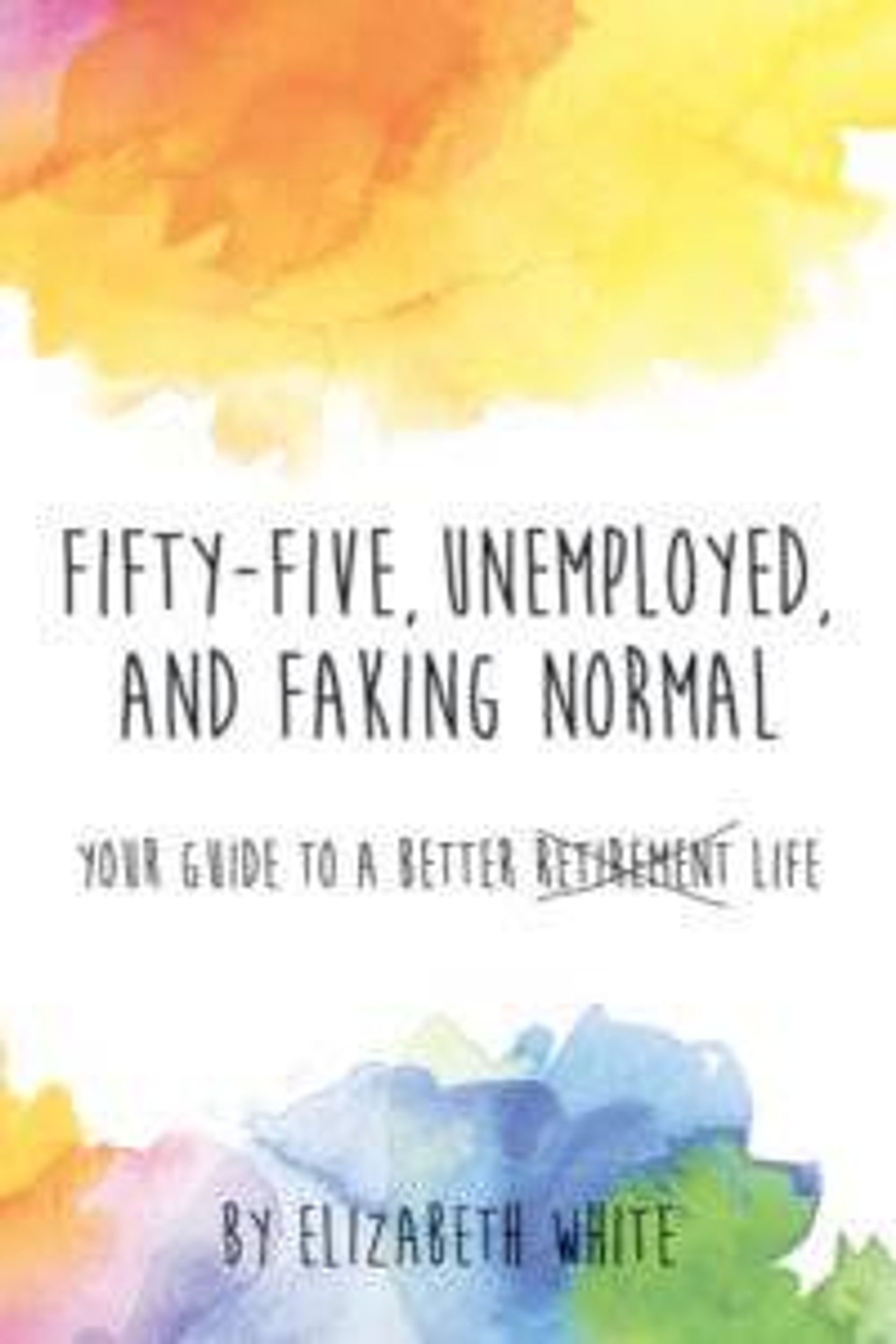Jobless After 50? Start a Resilience Circle
Advice from 'Fifty-Five, Unemployed and Faking Normal'
(In 2015, Elizabeth White wrote the personal article for Next Avenue, “Unemployed, 55 and Faking Normal.” She has now expanded it into a practical book for older jobless Americans, with 100 online resources and true-life stories: Fifty-Five, Unemployed and Faking Normal: Your Guide to a Better Life. The following is an excerpt from it. You can contact her at [email protected].)

When I lost my job three years ago, one friend proved to be my touchstone and sanity refuge. Like me, she was a former high earner dealing with a major work gap and an unstable income. We used to play this crazy game called “Top This” to get relief from the stress.
I would share that my cell phone was about to be disconnected for nonpayment. She would counter that her water had been turned off. It was the crisis sweepstakes. The person with the worst situation won.
I know, it sounds moribund. But in some of the worst moments, it made all the difference. Our friendship was one of very few places I could go without feeling I had to “fake normal” or pretend I was all right.
This friend, a few others and my mother and daughter were the line in the sand between the abyss and me. I was still broke, but how I held being broke had changed. And that allowed me to take my first steps back from the abyss.
If you’re a fellow faking-normal traveler — unemployed, over 50 and feeling at sea (like Brandon and Zoe were below) —I suggest you start what I call a “Resilience Circle.” Finding my tribe and being part of a supportive community has been critical to my sense of well-being and key to my ability to choose what’s right for me and to act on my own behalf. And I believe it could be for you, too.
Creating Your Resilience Circle
You likely already know one person among your friends and friendly acquaintances who is faking it, and that person likely knows another, and so on. That’s enough to begin.

Approach that person. Tell him or her that you’d like to start a small Resilience Circle to support each other and to discuss issues related to aging and living a good life on a limited income.
Don’t make the group too big. You will be sharing personal information and don’t need a cast of thousands for that (what’s said at the meetings should be kept confidential). Between eight and ten people is probably enough. But you can hold meetings even if your Resilience Circle consists of just you and two or three others at the beginning.
Keep the logistics simple. Meet in someone’s home or in the library. Make it cheap. Don’t go overboard with the refreshments — or serve no food or drinks at all.
Plan on holding meetings for three or four months and appoint a group leader or moderator to keep the discussions on track.
Reflection is a key part of Resilience Circle gatherings. Each person should start by talking about two big things in their lives they wish they’d done differently and that negatively affected their finances. A question for the group: What do you know now that you didn’t consider then? (Each chapter of the book has a set of reflection questions like these to facilitate Resilience Circle discussions.)
Meet Zoe
When I met with Zoe for the book, she was 62 and had $31 to her name…literally. And I had never seen her happier or more grounded. Yes, she had landed a new client and money was in the pipeline, but she was still on food stamps and living in a one-bedroom rental in a Maryland suburb.
Her career, which had included international business travel, high-profile clients, testimony before Congress and a group Emmy, began to unravel during the Great Recession of 2007-09. The tanking economy happened on the heels of her divorce, delivering a one-two punch.
At 58, Zoe found that her work opportunities had all but dried up. Without clients, things spiraled out of control. “I was always digging out of a hole. When a check did finally come, I’d need it, and more, to pay back bills,” she told me.
Meanwhile, she was still trying to play the part. That meant saying Yes when colleagues got together for nightcaps or picking up the dinner tab with a potential client. “Of course, no one ever suggested TGI Friday’s, Ruby Tuesday’s or Olive Garden,” she said, laughing. It was always the chicest D.C. watering holes, where one drink and a couple of ‘small’ plates would easily run you $50 and up. In those days, I was afraid to say no.”
By spring 2013, Zoe was three months behind on the payments for her 2,500-square-foot house in a tony D.C. suburb. So she packed up, rented a storage unit for her home’s contents and, with her college-aged daughter, moved in with family members in another city.
Those were the dark days. In Zoe’s eyes, the move broadcast failure. “I was in shock, embarrassed and lost. I cried all the time. My identity had been defined by the high-profile jobs and all my stuff,” she said.
Zoe said she’d never been tested the way she was being tested. She’d been humbled by the situation and out of this humility had come a kind of quiet that allowed her to access a part of herself that was not driven by status or money.
“I recommitted to those things I could control: daily meditation and yoga, exercise and diet. When you’re broke, you’re in a perpetual state of fear and panic. You’re always anticipating the worst. But an hour of yoga gives you a place of rest, and the rhythmic breathing clears everything. Your head and heart are clear enough to hear the still, quiet voice of God,” she told me.
Zoe also sought out ways to grow her business. One of her biggest finds was the Maryland Small Business Association, which offers assistance on everything from making business plans to creating effective websites. “Working with my business counselor gave me hope that I would work again,”she said. “I found that virtually all creditors will work with you if you tell them what’s going on. But you have to ask about programs for people facing hardships, because lots of times this information is not volunteered.”
Nowadays, she’s focused more on what she wants to do than on what others think she should be doing, saying: “I am building a casserole of work more aligned with my values.”
Zoe's one-bedroom apartment is airy and bright and decorated with her favorite pieces from her old life. She recently landed a short-term contract that lets her pay the bills — with a little money to spare. Life is good, in a deeply satisfying way.

Meet Brandon
This is Brandon’s story, and advice, in his own words:
I was an account manager and thought I was working in the job I’d retire from. That is what I hoped for. But my former company didn’t care about my hopes or dreams. At 56, I was laid off, along with 40 colleagues.
I began applying for positions similar to the job I'd had. One of my former clients hired me to do day-to-day operations in his office for about one-third of my previous salary. I wasn’t surprised when it ended 18 months later.
My wife and grade-school-aged children had been doing all right before the layoff. Now my wife has found work in her longtime profession as a photographer, but our income is under strain. We’ve been able to get a great deal of help from my wife’s mother — providing a loan and buying some of the kids’ clothing. Without that, we’d be much worse off. If you can get help from your extended family, do not refuse it.
I continued applying for the same account manager/customer service work I knew, but it wasn’t working. I kept seeing the same phrase in carefully worded rejection e-mails: ‘We found other candidates for the position who would be a better fit. A better fit, as if I were a shoe that was too large or the organization was too large for my skills.
I presumed my rejections had to do with other factors: I was too experienced or too old. There was another problem with my job search — I wasn’t looking for work that I thought was beneath my experience and education. At a time when almost any income would’ve helped, I had no business not pursuing any kind of work. I needed to get down from that high horse.
To keep my head up, I networked and intensified my artistic work, which meant continuing to write poetry and short stories and making progress on a play I’d been writing. I also began using my phone’s camera in earnest and created a Tumblr site (Sonny Jam’s Place) where I uploaded poems, a few cuts of music and my photographs.
Eventually, the only things I uploaded were photographs. I traversed the city, capturing the murals of artists. I’d supply information about the muralists, with links to their sites. People liked the work, I enjoyed the “discoveries” and I stayed active. Eventually, I began to work on my own photographic images. I took so many photographs that I realized I had a collection and saw the potential for an exhibit. I still do.
After several more application rejections and interviews, I realized maybe I wasn’t going to find work as an account manager ever again. I adjusted my resumé, shortened it and made changes to interest certain employers. I changed my cover letter’s style and began pursuing different leads.
Then I got a call from a life coach who said she kept seeing my name on LinkedIn. She said I needed to figure out how my skills were transferable and how I might turn my experience down another path. She never asked for money and didn’t help me find a job, but she helped me shift my energy and reset my headspace.
Here are a few suggestions if your story is like mine:
Stay active. The depression that some of us may unknowingly develop after losing a job can be paralyzing.
Intensify or reinvigorate your sidelined artistic endeavors. Embrace your multi-talented self.
Keep a journal or several, each with a different purpose. I have a daily journal to get thoughts out of my head and a blank notebook for drawing. I also keep an everyday journal to keep track of what I did during the day. Without it, my days would blend into one another. You don’t want to lose track of your days.
Never accept anyone who thinks you’re old. Force the changes that you’ll need to move forward. The only things you should consider old are the ways you used to be.

